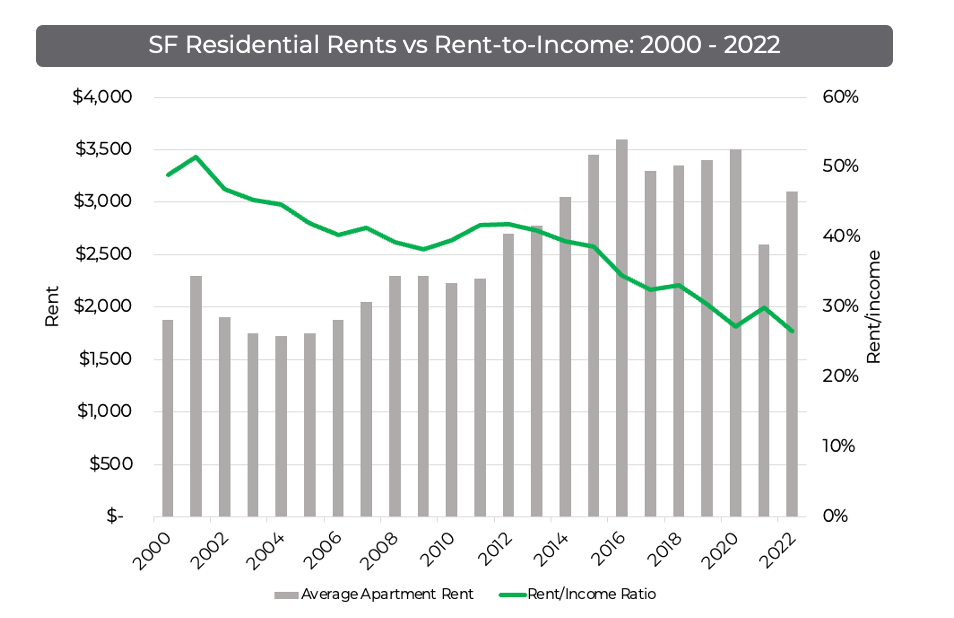Is the San Francisco Hotel Strike a Canary in the Coal Mine?
Or just kooky San Franciscans doing kooky San Francisco things
Just when San Francisco was getting its act together and its groove back, a months-long hotel workers strike threatens to derail the city’s budding recovery.
For now picketing is confined to hotel and healthcare workers, but there’s a nonzero risk that percolating labor unrest could engulf the city’s other economic lynchpins.
In September and to little national fanfare, members of San Francisco’s Unite Here Local 2, representing over 15,000 San Francisco hotel workers including employees of Hilton, Hyatt, Marriott and Westin, walked off the job.
The strike is now more than two months old and spreading.
Workers at the University of California university system went on strike on Wednesday November 20th, which included more than 4,000 healthcare workers in the UCSF network.
This is the latest in a growing wave of labor unrest in California and nationwide, which has been on the rise since 2018 (interrupted and exacerbated by the Covid-19 pandemic).
Despite a historically low reported unemployment rate, rising activism underscores the broad dissatisfaction working Americans feel about inflation, rising housing costs, and employers (in the case of UCSF, a nonprofit university and healthcare system) that appear “willing to spend money on everything but its staff.”
And it’s no surprise that much of this discontentment is centered in California, which boasts the trifecta of the least affordable housing of any state,
the highest gas prices,
and highest state income tax.
Ironically, San Francisco may be the exception, with the best housing affordability in decades as measured by apartment rents to median income.
But the San Francisco hotel strike could drag on, since the hotel owners that the workers are fighting against are drowning in debt and still digging themselves out of a pandemic-sized pit.
The city’s largest hotel has already handed back the keys to its lender, and with the unions striking, hotel owner are losing money by just being open. Not a great backdrop for raising salaries and improving benefits.
So the two-month old strike is likely pull in workers from other hotels striking in solidarity, which the union is now threatening.
Much of the strain on workers stems from the pandemic, which decimated San Francisco’s tourism industry and put tremendous strain on the city’s health system.
But now that the city is recovering with money pouring back into technology startups, its reasonable that a swath of the city workers — who learned a few years ago that they were “essential,” despite their paychecks not reflecting that status — are feeling left out.
In an ironic twist, if the capital-labor situation continues to erode, unionized workers in other fields could be dragged into the fight, worsening the very conditions they’re fighting against.
According to colleagues who have priced them out, residential construction projects in San Francisco cost around 30% more with union labor than non-union.
The city’s housing pipeline is effectively shut since new projects don’t make economic sense, so if construction unions were to strike, the cost to build could rise further, or projects could be delayed even more than they already are.
How likely is that? Hard to say since San Francisco’s last construction strike was back in 1999, but major worker contracts expire in 2027, having just been renewed in July 2024. So this is something to watch over the coming years.
And with rents (relative to income) at historic lows, little housing under construction and the economy picking up steam, it’s unlikely that cost of living pressures will be alleviated any time soon.
Don’t be surprised if we look back at the hotel strike was the canary in the coal mine, rather than just kooky San Franciscans doing San Francisco things.










Like I seriously needed ANOTHER REASON!
As always, thoughtful analysis of the harbingers of things to come…..